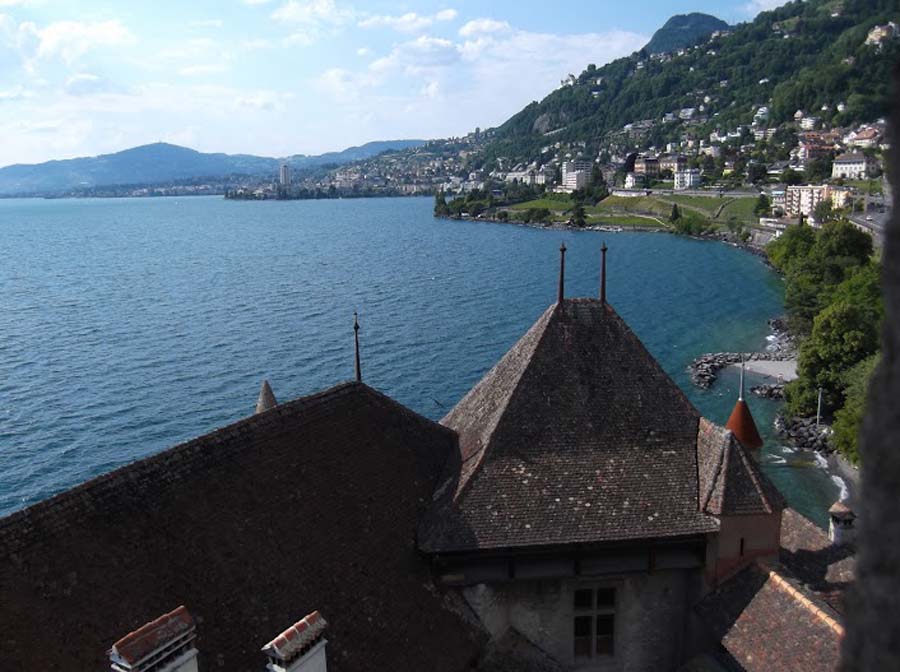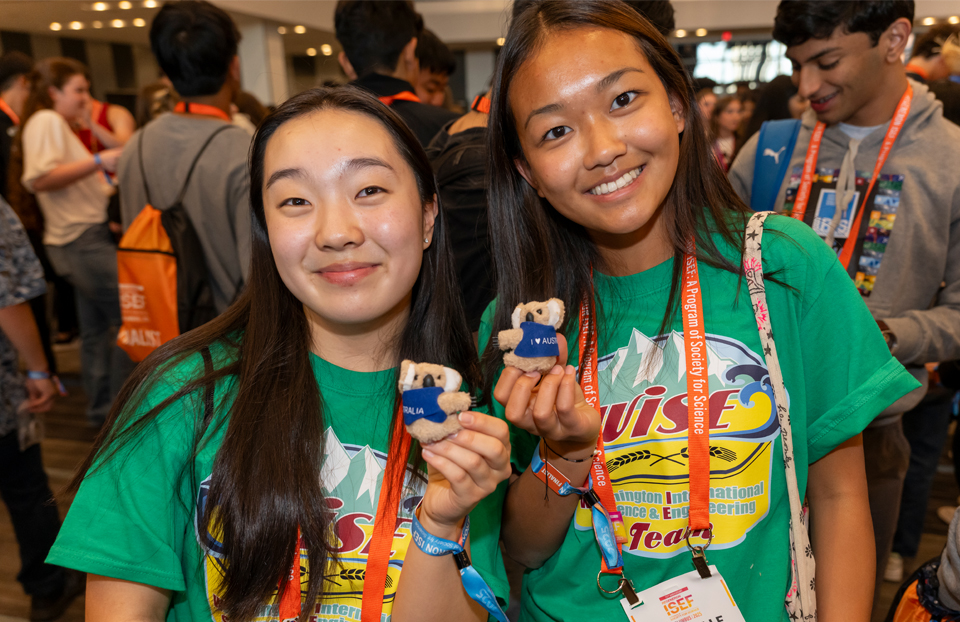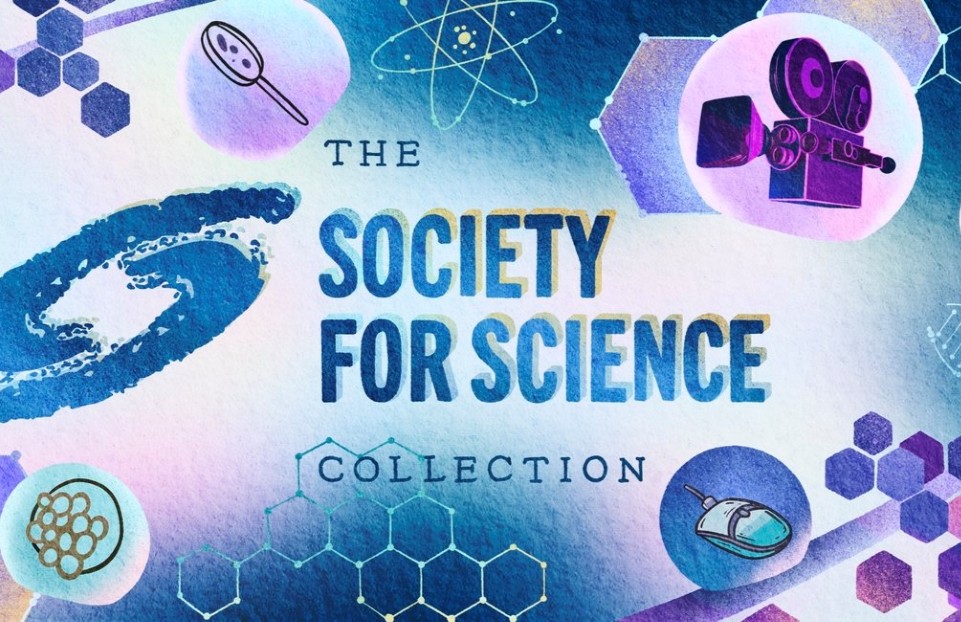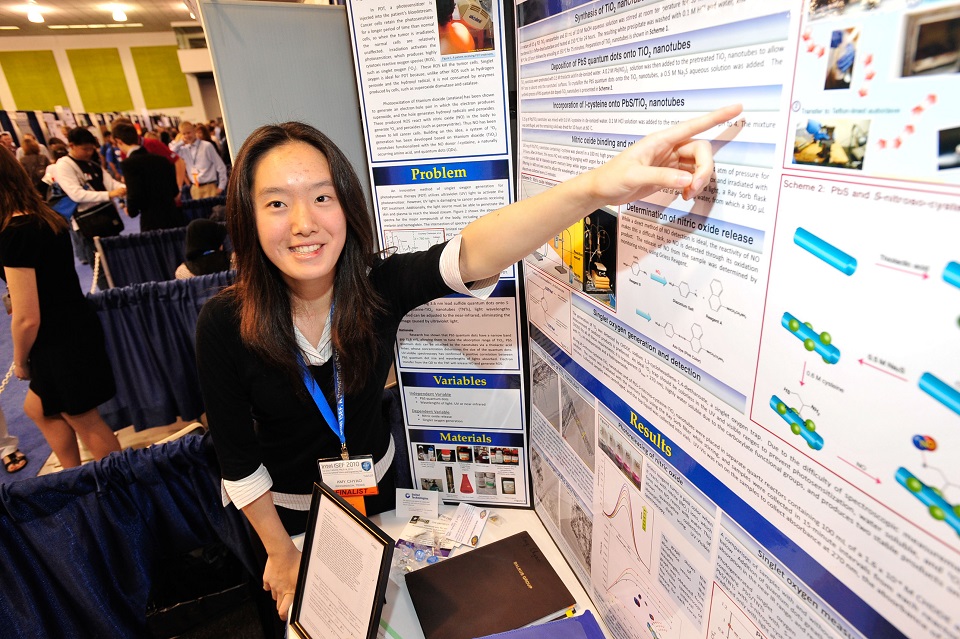Michaela Brchnelova travels to CERN via Intel ISEF

Winning a special award at the Intel International Science and Engineering Fair (Intel ISEF) is a highlight for the high school students who pour their hearts into high-caliber research. For the winners of the all-expense paid summer trip to CERN, the experience was further validation that all their hard work and long hours were truly worth the incredible effort. On their trip to CERN, students furthered their peer-collaboration abilities, heard from top scholars and researchers in their fields of interest, and, most importantly, had fun with people just as passionate about science and research as they are.
Michaela Brchnelova of Slovakia thought she had little actual hope for winning the trip to CERN, since it was her second year applying, so she chose instead to write her personal statement and project description in rhymes. It was late at night; she just wanted to get the application finished before the deadline and get to bed. Now she has a great running joke — turns out, scientists at CERN really enjoy poetry.
Can you give us a short description of your Intel ISEF project?
My project, in short, is about particle acceleration in supernova remnants. For a long period of time, astronomers have been detecting very high-energy cosmic-rays coming from our galaxy with energies of petaelectronvolts — much higher than we are actually able to reach in our accelerators. And the process in our galaxy responsible for this acceleration was only theorized. In my project, I have shown that in supernova remnants — large clouds created after the outbursts of stars in the end of their lifetime — there are ideal conditions for this theorized process to occur, and that this process is indeed taking place there. In this way, I have proved that these petaelectronvolt particles gain energy in young supernova remnants, and now we know where they are coming from.
What were your expectations of CERN before your trip?
First, it was sort of difficult. We received a lot of documentation to be filled in and checked by a notary public, and there was really not much time for that, since the trip took place only one month after Intel ISEF.
I expected a typical trip on which many of my friends have been (for the last few years, it has been a big hit to take students to CERN from my country, since it is not that far away, even by bus), maybe a higher level of lectures. Nevertheless, I really looked forward to it — going to CERN had always been a big dream of mine. It, however, turned out to be something really unique and special.
What was the highlight of your trip?
There was certainly no single highlight. If I had to pick one single event, it would be seeing the antimatter decelerator. I was fascinated by the physics behind this experiment probably the most, and furthermore, our guide was absolutely enthusiastic about his work, so it naturally made us more enthusiastic as well. But each experiment and each lecture, as well as the trip to Chamonix and Geneva, were highlights and events I will never forget.

How have your Intel ISEF and CERN experiences enhanced your research curiosity and future goals?
This is extremely difficult to answer using just one paragraph. The most important “Intel ISEF turning point” happened probably one year ago, when I went to my first Intel ISEF in Phoenix.
I was really tired of all the work, and it seemed like I had lost all of my motivation. I considered Intel ISEF a burden, and as I travelled there, I was sure that when I returned, I was not going to do anything like this anymore. It was probably because of the exhaustion and pressure, but I was really unmotivated.
I do not know what it was in particular that happened at Intel ISEF — it was probably a combination of all the factors including the judges, other contestants, travelling, lectures and everything — but I started my next research project as soon as I was sitting on the plane on my way back home, full of energy and enthusiasm. Since then, Intel ISEF has been one of the greatest motivations I had to continue.
When I felt unmotivated again, I looked at the photos from Intel ISEF and thought about everything Intel ISEF gave me — the opportunity to meet great people from all over the world, to meet scientists who wrote the articles I studied from, to improve myself and have almost everything I need for my professional career, and to give lectures all over Europe and the U.S., since people from my field were curious about my work.
CERN helped me more with the second part of the question — my future plans. I saw all the different fields in which physicists can work and all the different jobs they can do, and that it is not only about sitting in the office scrolling through the latest articles. The trip definitely provided me with many ideas of what job I can have when I am older.


